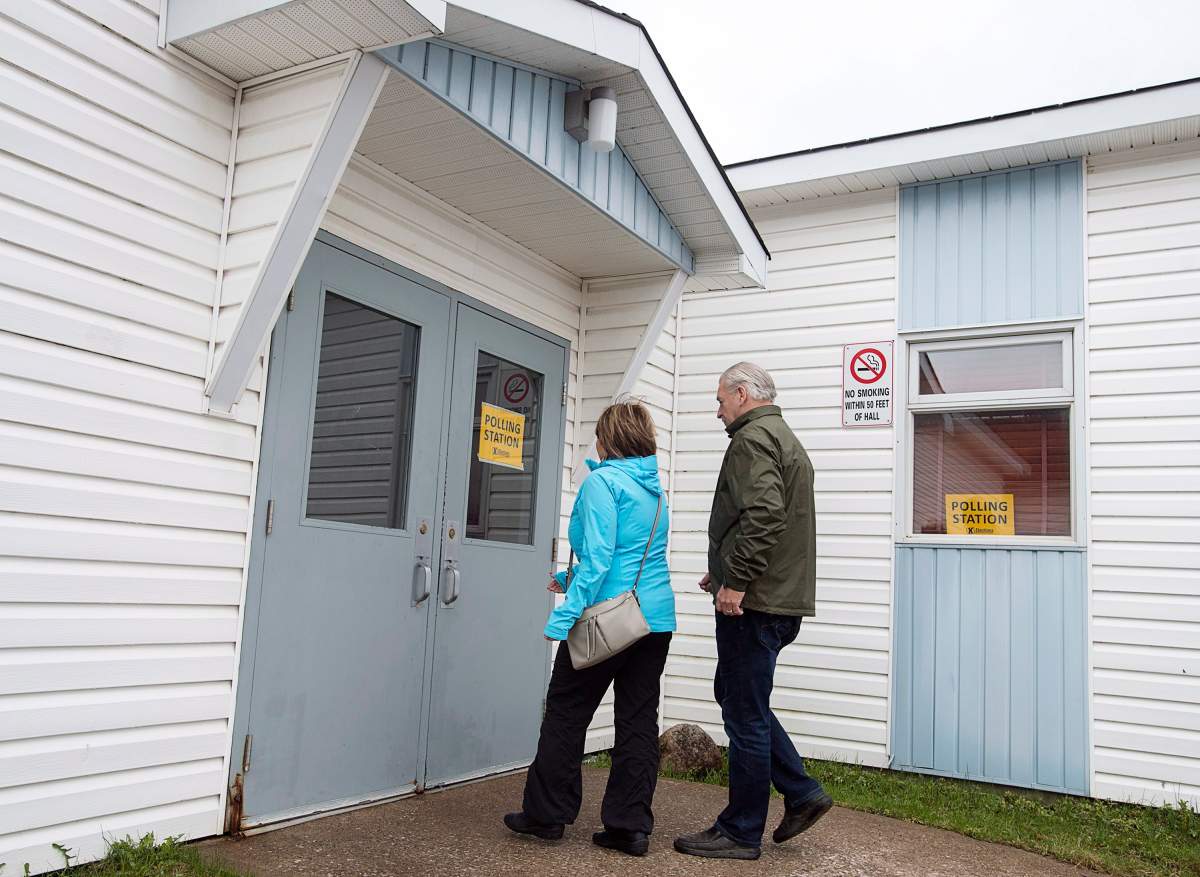Voters in Newfoundland and Labrador headed to the polls today to decide the fate of Premier Dwight Ball’s Liberal government after an election campaign that focused on two leaders — neither of whom is particularly well-liked by the public.

Recent polls have suggested the Liberals, who are seeking a second term in office, were locked in a tight race with the Progressive Conservatives, led by lawyer Ches Crosbie — son of former federal cabinet minister John Crosbie.
READ MORE: Population of the Maritimes on the rise, but Newfoundland reports decline
Though no government in Newfoundland and Labrador has served less than three consecutive terms, the Liberals are all too aware that a recent string of provincial elections have turfed the incumbents.
Since last June, five governments have been voted out of office, four of them Liberal administrations.
WATCH: Federal campaign themes begin to emerge six months ahead of vote

The Liberals in Newfoundland and Labrador have been struggling to deal with a stalled economy, a massive debt and a leader who hasn’t really clicked with the electorate.

Get breaking National news
However, Crosbie’s Tories have plenty of political baggage to deal with now that they are being blamed for the multibillion-dollar debacle that is the Muskrat Falls hydroelectric project.
READ MORE: Audit finds Muskrat Falls cost overruns became obvious soon after megaproject got underway
It was a previous Tory government that sanctioned the project, which is now two years behind schedule and double its original projected cost at $12.5 billion.
Residents have been warned their electricity rates are expected to double to cover the inflated cost, and an ongoing judicial inquiry has routinely provided disturbing insights into a megaproject that has gone off the rails.
As well, the electorate hasn’t warmed to Crosbie, a lawyer and political rookie who was elected Tory leader just over a year ago.
WATCH: More Greens will be elected in coming election: May

Crosbie, of course, is promising change. He’s even described himself as “a new broom.”
The province’s New Democrats, led by economist Alison Coffin, were caught unprepared when Ball – a former pharmacist – called for an early election to avoid a conflict with the federal vote this fall. There are only 14 NDP candidates running in the provincial election – 26 shy of a full slate.
When the provincial election was called, the Liberals held 27 seats in the 40-seat legislature, the Tories had eight, the NDP held two and there were three Independents.
Though there are nine Independent candidates in the race, the Green party has not fielded a single candidate, despite breakthroughs in Prince Edward Island and New Brunswick earlier this year and British Columbia in 2017.
WATCH: Reflecting on the ‘Green Surge:’ Federal Green Party Brock Grills says people want change

Stephen Tomblin, a retired Memorial University political science professor, described the campaign as “by-design boring” and an “almost a non-campaign.”
Tomblin says the large number of independents and a relatively high proportion of undecided voters in recent polls suggest the electorate may be getting fed up with politics as usual.
That raises the possibility of a minority government, something the province hasn’t seen since October 1971, when there was a virtual tie between the Liberals and Tories. Less than five months later, the legislature was dissolved and the Tories won a majority government.
- Trump slams Canada as U.S. House passes symbolic vote to end tariffs
- ‘We now have to figure out how to live life without her’: Mother of Tumbler Ridge shooting victim speaks
- Carney, federal party leaders to attend Tumbler Ridge shooting vigil Friday
- Mental health support after Tumbler Ridge shooting ‘essential,’ experts say







Comments
Want to discuss? Please read our Commenting Policy first.